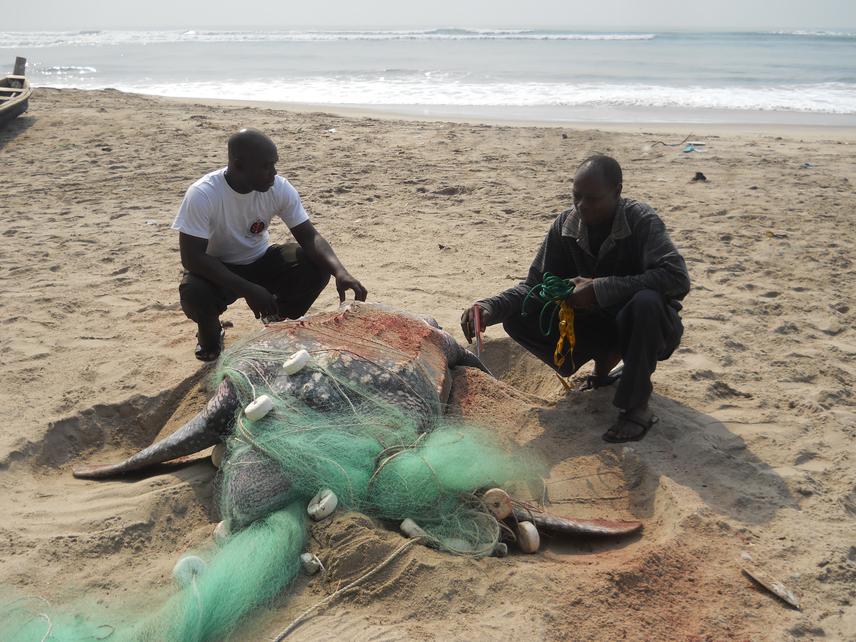Andrews Agyekumhene
Other projects
29 Nov 2017
Improving the Capacity of Fishing Communities to Actively Participate in Long-Term Sea Turtle Management in Ghana
Building the capacity of local fishing communities to promote sea turtle conservation in Central Region of Ghana

This leatherback sea turtle caught in gill net during fishing operation was released by PI and local fishermen
Sea turtles in Ghana are faced with increasing anthropogenic threats including harvesting, egg poaching and degraded habitat. But the primary risk to their survival is routine capture in fisheries. In Ghana, a significant number of vulnerable leatherback, endangered green, and vulnerable olive ridley sea turtles are killed each year from the gill net fisheries. Although it is illegal to capture sea turtles in Ghana, the accidental capture of these animals remains a major threat to turtle populations in the region. This project aims to quantify sea turtle capture among artisanal fisheries and educate fishermen to reduce these captures.
Currently, information on the capture rate of sea turtle in Ghana’s coastal fishery is limited. There is the need to therefore first quantify these captures to better inform decision on testing any method. The project will also interact with fishermen to identify the circumstances surrounding the capture of sea turtles in fishing operations; whether or not sea turtles are captured intentionally and what the fate of sea turtles captured are (released or killed for food and income). Information from interaction with fishermen and sea turtle capture rates assessment will inform policies of the Ghana Fisheries Commission and Ghana Wildlife Division in dealing with sea turtle mortality and contribute towards the holistic conservation of the species.
The project will undertake conservation education programs in schools and fishing communities within the project area. The sensitization and awareness will help keep the fishermen informed and improve their knowledge on the importance of sea turtles and their conservation needs so as to effect attitudinal change. Most often than not, locals communities destroy their natural resources because they do not know the importance of that resource to their livelihood or the impact of their certain activities on the resources. The education will be linked with the contribution of sea turtles to improving fish stocks in the ocean, ecotourism and revenue generation which can bring local developments to the communities. Educating fishermen in this way will help change their attitude towards sea turtles and bring about a long term support towards any conservation strategy.
The project will also provide support items for fishermen. Fishermen whose fishing nets are destroyed by sea turtles during incidental captures will be given a piece of net and threat to mend the broken parts of their nets. This will make fishermen more willing to release sea turtles capture in fishing gears.